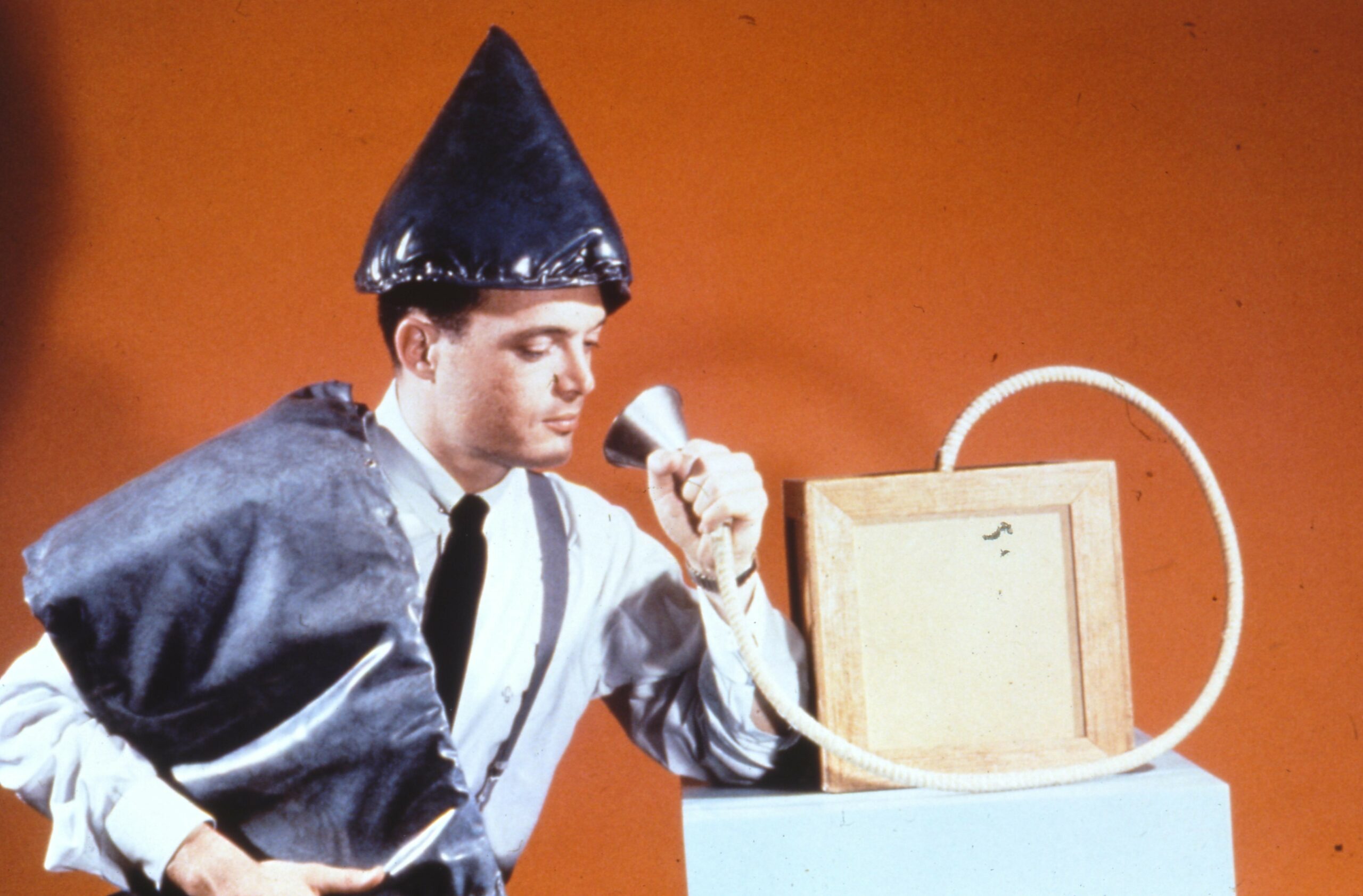Wilhelm Reich’s Orgone Energy Accumulator Was Beloved by William S. Burroughs and Banned by the FDA: Find Plans to Build the Controversial Device Online

Was Austrian Marxist psychoanalyst Wilhelm Reich a trenchant socio-political thinker or a total crank? A fraud or a prophet? Maybe a little from each column, at different times during the course of his bizarre career. An enthusiastic student of Sigmund Freud, Reich applied his teacher’s theories of repressed libido to the frightening political theater of the 1930s, writing against the spread of Nazism in his prescient 1933 book The Mass Psychology of Fascism. Here, Reich brought Marx and Freud together to argue that sexual inhibition and fear led to arrested development and submission to authoritarianism.
Reich was “a sexual evangelist,” Christoper Turner writes at The Guardian, “who held that satisfactory orgasm made the difference between sickness and health.” His work was banned and burned by the Nazis, and he fled to a succession of Scandinavian countries, then to the U.S. in 1939, “by which time his former psychoanalytic colleagues were questioning his sanity.” The primary reason for their suspicion: Reich’s devotion to what he called “orgone,” an all-pervasive sexual energy that permeates the universe… according to Reich. Orgone and related concepts appear in his early work, but by the end of the 1930s, they came to entirely dominate his thinking.
“In the strange and colorful history of pseudoscience, Wilhelm Reich’s ‘discovery’ of orgone—a substance that’s not only a life force, but indeed makes up the very fabric of space—must surely be a watershed,” writes Matt Simon at Wired. Reich intensified his belief in the glowing blue energy of orgone with the invention of the Orgone Energy Accumulator, an isolation box that supposedly charged those who sat inside it with the power of orgone. The device went through a few iterations (see the use of the “orgone blanket, above), until its final form of a metal-lined box roughly the size of a wardrobe or telephone booth.
Reich’s influence on 20th century culture goes far beyond the creation of this weird device. He might be said to have predicted and precipitated what he himself called the “sexual revolution.” (“No power on earth will stop it,” Reich wrote in the 30s.) Critics dismissed his belief in the liberating potential of free love as a “genitial utopia.” Their scorn mattered little to the countercultural figures who picked up and disseminated his work. “Almost a century” after Reich’s invention of orgone, writes Simon, “his bonkers ideas live on,” including the notion that nearly every health condition can be traced to an imbalance of orgone energy.
The Orgone Accumulator was popularized by William S. Burroughs, a true believer—as he was in many things, from Scientology to Shamanism—and an enthusiastic promoter of “life in orgone boxes.” (Jack Kerouac called Burroughs’ accumulator a “mystical outhouse” in On the Road.) Burroughs swore by the accumulator and wrote a 1977 article for Oui magazine in which he defended Reich’s claims that time spent in the sealed box might cure cancer—a claim that prompted the FDA to file an injunction against Reich in 1954 to stop use of the device and literature pertaining to it.
“Reich continued profiting from the accumulators,” writes Simon, “and the court found him in contempt of the injunction. He was sentenced to federal prison, where he died in 1957.” Devotees of his work have defended him ever since. (“Who is the FDA,” wrote Burroughs indignantly, “to deprive cancer patients of any treatment that could be efficacious?”). James DeMeo, Ph.D., director of the Orgone Biophysical Research Laboratory in Ashland Oregon, has recently released the 3rd, revised and expanded, edition of his Orgone Accumulator Handbook, a thorough reference guide, “with construction plans.”
Should you have the desire to build your own “mystical outhouse,” DeMeo’s text would seem to be a definitive reference. Proceed at your own risk. Wilhelm Reich’s orgone therapy remains squarely on a list of treatments unapproved by the FDA. The FBI, on the other hand, who “have a whole section on their website dedicated to Wilhelm Reich,” notes Mary Bellis, found no cause to prosecute the Austrian psychologist. “In 1947,” they note, “a security investigation concluded that neither the Orgone Project nor any of its staff were engaged in subversive activities.” But what could have been more subversive to the post-war U.S. establishment than maintaining the world’s ills could be cured by really good sex? Download a free copy of DeMeo’s book here.
Related Content:
A Look Inside William S. Burroughs’ Bunker
The Famous Break Up of Sigmund Freud & Carl Jung Explained in a New Animated Video
Josh Jones is a writer and musician based in Durham, NC. Follow him at @jdmagness
Wilhelm Reich’s Orgone Energy Accumulator Was Beloved by William S. Burroughs and Banned by the FDA: Find Plans to Build the Controversial Device Online is a post from: Open Culture. Follow us on Facebook, Twitter, and Google Plus, or get our Daily Email. And don't miss our big collections of Free Online Courses, Free Online Movies, Free eBooks, Free Audio Books, Free Foreign Language Lessons, and MOOCs.
from Open Culture https://ift.tt/39HCIJf
via Ilumina
Comments
Post a Comment